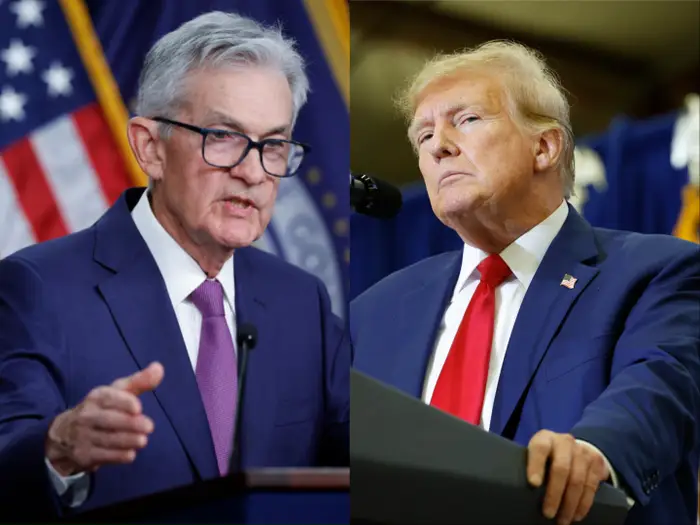Subtotal ₹0.00
On November 7, 2024, the Federal Reserve announced its latest interest rate decision, coinciding with the election of Donald J. Trump as the next President of the United States. Trump’s campaign promises—including tax cuts, deregulation, infrastructure investment, a focus on American manufacturing, and imposing tariffs on Chinese imports—are poised to influence the economy and, by extension, the trucking industry. This article examines the potential impacts of the Federal Open Market Committee’s (FOMC) decision and the forthcoming Trump administration’s policies on the trucking sector.
The FOMC’s Latest Interest Rate Decision
The FOMC regularly assesses economic conditions to adjust interest rates, aiming to balance growth and inflation. The November 7 decision is particularly significant given the recent election and anticipated policy shifts.
- Rate Cut: A reduction in interest rates would lower borrowing costs, facilitating easier financing for trucking companies to acquire new equipment and expand fleets. This could also stimulate consumer spending, potentially increasing freight demand.
- Rate Increase: An increase would raise borrowing costs, potentially slowing fleet expansion and investments in technology within the trucking industry.
- Steady Rates: Maintaining current rates suggests a cautious approach, providing stability for trucking companies to plan budgets without immediate economic stimulation or restraint.
Immediate Economic Impact of Trump’s Election Promises
Trump’s proposed economic policies are expected to have several effects on the trucking industry:
- Increased Demand for Freight: Emphasizing U.S. manufacturing could boost domestic production, leading to higher demand for freight services as materials and goods require transportation nationwide. This presents opportunities for carriers, brokers, and dispatchers to expand operations. Fleet Owner
- Tax Cuts and Business Spending: Proposed corporate tax reductions may encourage businesses to invest in infrastructure and equipment, increasing disposable income and consumer spending. For the trucking industry, this could translate to higher freight volumes as production and distribution activities intensify. Investopedia
- Tariffs on Chinese Imports: Trump’s plan to impose a 60% tariff on Chinese goods aims to protect U.S. industries but may lead to higher costs for raw materials and finished products. This could result in increased consumer prices and decreased demand for certain goods, affecting freight volumes. Businesses might also adjust supply chains, causing temporary disruptions in freight demand. Snopes
- Supply Chain Realignment: Efforts to reshore jobs and reduce reliance on foreign manufacturing could shift supply chains domestically, increasing demand for U.S. transportation services. Harvard News
Impact on Consumers and the Trucking Industry
Tariffs on Chinese imports may lead to higher consumer prices, reducing discretionary spending as households allocate more to necessities. This decrease in spending can lower demand for goods, subsequently reducing the need for transportation services. Conversely, a shift toward domestic goods could boost demand for domestic freight, benefiting the trucking industry. Monitoring consumer behavior and adjusting strategies accordingly will be crucial for industry stakeholders. PBS
Potential Long-Term Impact of a Trump Presidency on the Trucking Industry
As Trump prepares to take office, several long-term effects on the trucking industry are anticipated:
- Infrastructure Investment: Trump has promised significant investment in U.S. infrastructure, potentially improving roads, bridges, and ports. Such enhancements could reduce delivery times, lower maintenance costs, and improve efficiency for the trucking industry. Bloomberg
- Reduced Regulation: A focus on deregulation may loosen restrictions related to emissions, labor, and safety standards, potentially lowering operating costs but introducing challenges in safety and environmental compliance. Fleet Owner
- Trade Policy: Beyond tariffs on China, broader trade policy changes could affect the flow of goods, impacting demand for international and cross-border freight services. Trucking companies should monitor these developments, as shifts can have varied effects on freight volumes. Wall Street Journal
What This Means for the Trucking Industry and Businesses

The combination of the Fed’s interest rate decision and the forthcoming Trump administration’s policies presents both opportunities and uncertainties:
- Carriers: May benefit from increased freight demand if domestic manufacturing rises. However, potential higher input costs due to tariffs could impact fleet expansion and maintenance.
- Brokers: Could see increased opportunities as domestic production and distribution expand. Adapting to shifts in shipping patterns due to tariffs will be essential.
- Dispatchers: Higher demand for services may require optimized routes and scheduling. Tariff-induced demand fluctuations will necessitate strategic planning.
- Shippers: May experience changes in transportation costs and should stay informed on regulatory changes to ensure compliance. Tariffs could prompt a reevaluation of supply chains and inventory strategies.
Conclusion: A Pivotal Moment for the Economy and Trucking
The recent FOMC interest rate decision and the upcoming Trump administration mark a significant period for the U.S. economy and the trucking industry. While the Fed’s cautious approach provides stability, the full impact of Trump’s policies will unfold over time. Staying informed and agile will be crucial for industry professionals to navigate the evolving landscape.
Sources and Resources
- “Here’s what another Trump presidency means for trucking” – FleetOwner Fleet Owner
- “Here Are Some of the Sectors—and Stocks—Climbing After a Trump Win” – Investopedia Investopedia
- “Trump’s Proposed Tariffs: What Are They, and How Would They Affect US?” – Snopes Snopes
- “Larger lesson about tariffs in a move that helped Trump, but not the country” – Harvard Gazette Harvard News
- “Trump favors huge new tariffs. How do they work?” – PBS PBS
- “How Trump’s $1 Trillion Infrastructure Pledge Added Up” – Bloomberg Bloomberg
- “Trade Sector Eyes a New Wave of Tariffs Under Trump” – Wall Street Journal Wall Street Journal



Roshant
Can I ask a quick question about your site? https://google.com/?shant
Roshant
Support Fr8connect
Sure. How can I help you?